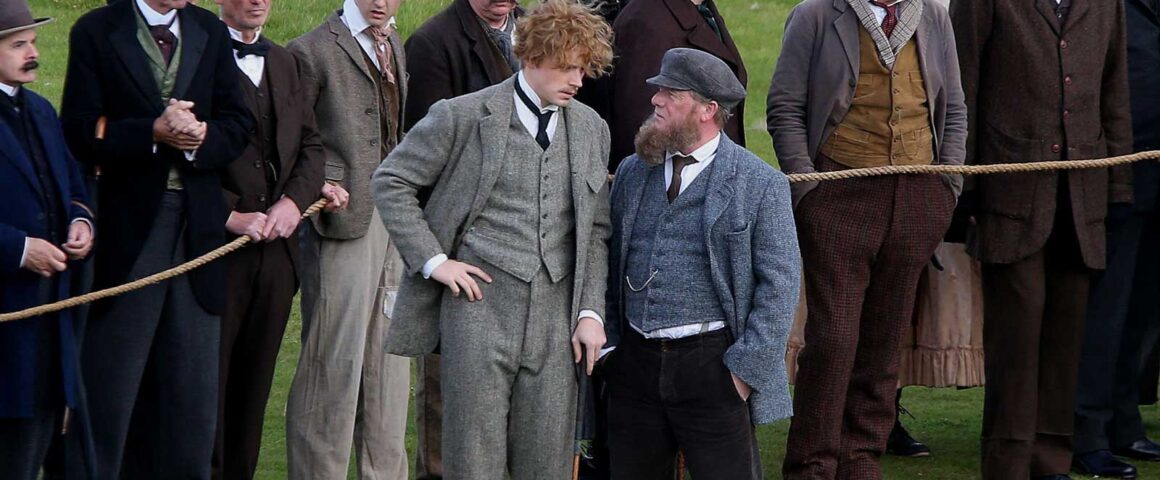Sport films can be annoying for non-sport fans, if they require a pre-existing interest in the sport itself. The more effective films in this genre, therefore, are often historical dramas that present the life of an individual through history, with the relevant sport part of his or her life. This gives filmmakers the opportunities to construct thrilling sequences such as those in “Rush,” compelling characters like Jake La Motta in “Raging Bull,” and explore turbulent periods such as post-apartheid South Africa in “Invictus.”
Tommy’s Honour continues this trend of sporting biopics, telling the story of the Morrises, a Scottish family whose legacy in the game of golf remains unparalleled. Directed by Jason (son of Sean) Connery, it is an engaging and at times moving story of class, family and community, set in beautiful Scottish coastal country (made possible by funds from the U.K. National Lottery through the Screen Production Fund of Creative Scotland). Connery imbues the landscape with character and the characters with heart, while screenwriters Pamela Marin and Kevin Cook craft an engaging story that interweaves recorded historical events with personal dramas.
Tom Morris, known as the grand old man of golf, is played impressively by Peter Mullan (“Hercules”), experimenting with a variety of facial hair that ranges from mutton chops to a beard that would make Gandalf proud. Tom is an established, talented golf player, but his working class position means that his social betters demean and patronize him on a regular basis. Confined to constructing balls and clubs, as well as caddying for the gentry, Tom’s skill at the game is nonetheless undeniable, as he and other lower class golfers play games that the upper class bet on, throwing a pittance to the players as recompense for the entertainment. Despite the patronage, Tom takes all that is foisted upon him stoically, his resignation to his lot in life expressed in shots that imbue the lines of Mullan’s countenance with the wisdom and weariness of long years’ experience. The actor’s gruff yet warm tones add much to the pathos of sequences that express his feelings, his low rumble conveying his love for the game and his family, as well as his thinly-veiled contempt for the attitudes of his social “betters.”
No such resignation is found in the young Tommy Morris Jr., (Jack Lowden, “Denial”), a golfing prodigy who challenges his father’s acceptance and demonstrates extraordinary talent for golf. Tommy is engaging and likable without being grating, as his skill and success leads to pride but stops short of arrogance or conceit. His relationships are sketched in engaging terms, whether it’s jocular banter with his friends, family rivalry with his father, the affection he shows to his brothers and sister, or the touching and amusing romance he develops with Meg Drinnen (Ophelia Lovibond, “Mr. Popper’s Penguins”). This relationship sparks further tensions between Tommy and his strictly pious mother Nancy (Therese Bradley, “Filth”), especially when Meg’s history comes to light. Pleasingly, the film does not dwell on any of these aspects too much, balancing its various strands effectively and ensuring that each thread receives adequate attention. Frosty relations thaw, other tensions develop, events both uplifting and tragic are well-handled and can leave the viewer moved and inspired, feeling that they have spent time with genuine, rounded people.
Of course, the real question, as is the case with any film about a sport, is do you need an interest in the sport to enjoy the film? In the case of Tommy’s Honour, absolutely not, as I have no interest in golf whatsoever (nor any sport for that matter), but found this film to be the most fun I ever had related to golf. This is because, like all good sport movies, Tommy’s Honour doesn’t give a flying five-iron about golf. It is a film about class, family and community, the rigid class structure of 19th century Scotland played out across the golf courses of St. Andrews and others. The aristocracy are most prominently represented by Captain Alexander Boothby (Sam Neill, “Hunt for the Wilderpeople”), who not only commands the golf club where Tom and Tommy work, but also delivers the harshest words to Tommy, whom he clearly regards as little more than a talented upstart. Yet these characters are not simple stereotypes either, presented as representatives of tradition and social expectation, unwilling to accept the societal changes represented by the increased prominence of professional golfers.
Not only that, but Connery also manages to make golf itself exciting, as particular strategies of the game executed by Tommy prove interesting nuggets on how to get the ball out of tricky positions. The film’s sporting climax is a game played out on a snow-covered course, where Tommy and his opponent battle the elements as much as each other, despite Tom’s warnings about the conditions. The sequence is shot through with personal drama as well, and like an earlier game, expresses the advantages and dangers of having golf as one’s “god,” as Tommy describes his father’s obsession at one point. But while that may be Tom’s view, Tommy’s Honour does not insist that the viewer share it, instead offering a balanced, nuanced and rewarding portrait of family and class, and possibly the most compelling film about golf you may see this year.




'Movie Review: Tommy’s Honour (2016)' has no comments